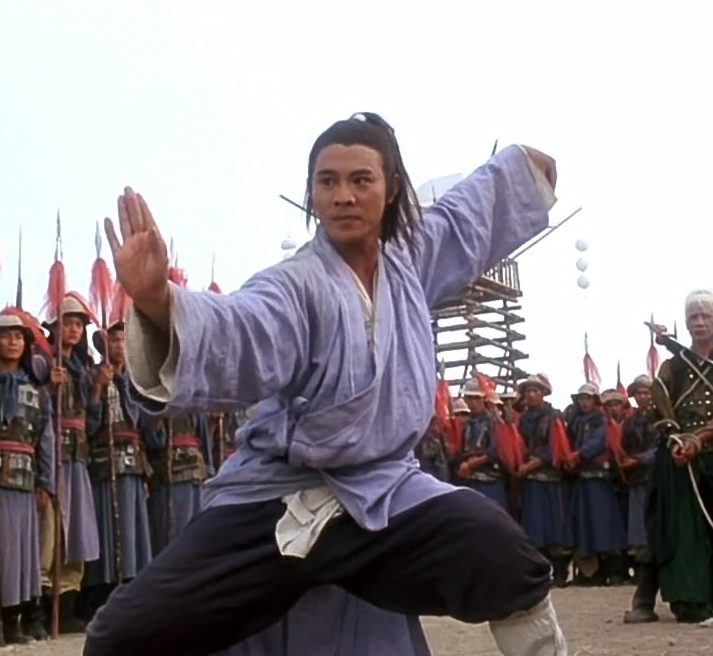5 Writer Goals to Help You Avoid Overwhelm
Are you feeling overwhelmed by all you have to do to be a writer? If so, join the club. Sometimes the writing journey feels overwhelming. There aren’t enough hours in the day to accomplish the mind-boggling amount of things we writers feel must get done in order to grow not just as writers but in order to establish our place in the publishing world.
Years ago, all an author had to do was write a book and send it off to a publisher (one handwritten copy at a time!), and if her manuscript was accepted, the publisher did all the work of publishing and promoting. Now, authors have to be writer, marketer, publicist—and sometimes publisher—in order to make strides to become known and to have their books sold and distributed.
And still, after long hours each week applying ourselves to so many career-promoting tasks, we may feel frustrated and unsure whether we’ve accomplished anything at all. And our books? Well, sometimes we don’t even have time to write, it seems.
We also set huge goals for ourselves, and sometimes these can also add to the overwhelm. So I’d like to recommend a few helpful writing-related goals that will help you achieve your broader goals.
1. Try some new plotting and structuring techniques
I am always trying to stretch myself with each new novel, trying out new techniques, new ways to plot, structure, and organize my ideas. For many of my novels I used index cards for scenes. I’ve created character flow charts, character arc charts. For one novel, Intended for Harm, I used six large pieces of poster board and used Post-It notes for the scenes. These are all ideas I got from other writers—either from their workshops or from books on the writing craft. If it’s in your plans to write a new book this year, think about stretching yourself and forging into new territory.
2. Try to attend at least one writers’ conference
I was given the advice to attend a writers’ conference nine years ago. I had attended a few here and there over the years, but this time I planned carefully which one to attend. I couldn’t afford to go to many, so picked the one that I knew would provide much-needed instruction on the writing craft. To my surprise, the author who made this suggestion said that not only did she receive an offer of a publishing contract at a conference but that’s how all her author friends got published. Really?
Well, nine years later and after having contracted eight of my novels with mainstream publishers by attending writers’ conferences and pitching there, I can also say that nearly all my writer friends who have gotten contracts or signed with an agent did so through pitching at a writers’ conference. I wish someone had told me this twenty years ago when I started out.
This is the best piece of advice I can give you, for it has twofold benefits—giving you the opportunity to hone your writing by taking classes and the chance to pitch your book (either idea or finished novel) to agents and publishers. Even if you’re not ready to submit, chatting about your story and perfecting your pitch is extremely helpful.
3. Pick one weak point in your writing and focus on that
We can become overwhelmed when we think of all the weak aspects of our writing. Surely there is room for improvement on so many fronts, and with lots of rejections we can become disheartened and feel like quitting. Make it a point to focus on just one element of your writing that you are weakest in and see how you can improve that this year. Athletes will spend 80% of their time working on the 10% or 20% areas they are weakest in. We should do the same. And when you see improvement, you will feel encouraged.
4. Find (or keep and appreciate!) at least one good critique partner
If you have someone who really gives you honest, helpful feedback, that’s a great joy and aid to your writing. You can set them up as an accountability partner, too, if you tend to procrastinate. One author friend agreed to do this with me, and each week we sent one new chapter for the other to edit and critique. This keeps you writing and on target for finishing a manuscript. You can find critique partners through online writers’ groups and organizations, and again, by attending a writers’ conference and hooking up with someone you feel a good connection with. I treasure my critique partners.
5. Apply yourself to becoming a better master of your language
Since I’m a professional copyeditor and writing coach, it stands to reason that I’m going to suggest this. I can’t overemphasize how much your writing will improve if you learn some good grammar and editing techniques. So many published authors aren’t great with grammar, spelling, and punctuation. They may feel that’s not their concern—trusting the proofreader at their publishing house will catch and fix all the errors.
But my feeling is that when you work hard to write better and more accurately—learning just where commas must go, when to use hyphens or italics, and how to properly punctuate dialogue—your writing will improve. When you’re not hindered by these things you don’t know how to do, you can focus on writing beautiful sentences and creating powerful imagery. It’s not a waste of time to learn to master the handling of the English language.
Challenge yourself to improve your writing chops. It will show in your writing, and the agents and editors (and readers) who read your work will see you in a better light. Editors love seeing their authors prepare error-free manuscripts.
Yes, this writing journey is full of overwhelm! But you can keep it manageable with practical, attainable goals that will help you make steady progress in your writing craft and career.
Any thoughts on some small steps and goals you’ve worked toward that have helped you keep from being overwhelmed? Share them in the comments!
Photo Credit: focus2capture via Compfight cc












Thank you for writing this article, C.S. These are helpful tips. But above them all, I find it very comforting to know that I’m not the only one dealing with feeling of being overwhelmed.
This post is very informative! I am new to the writing and publishing world, and had no idea that writing conferences make such an impact on getting writers published.
It makes sense, being that it’s a giant meeting of agents and writing hopefuls, discussing the craft, but I didn’t realize that writers are actually able to PITCH their book synopses to potential agents. Could you tell me a bit more about your experiences with that? Who have you met at these conferences and what sort of conversations were had to get to a comfortable place for pitching? Thank you for such a great post, C.S.!
Every conference is different. Agents and publishers are looking for various things, so when you look into attending a conference, make sure there will be agents and editors interested in your genre. The online and printed promo material usually states that. Some conferences have formal setups for pitching, like the speed dating at SF Writers’ and the 15-minute appointments at ACFW. Some are less formal, so you just have to research that. I just “sent” one client last month to NY to the Pitchfest, where he got two top publishers interested in his manuscript.
If I can just add a comment here, I recently attended a regional conference of Romance Writers of America. Both agents and editors were taking pitches and all made it very clear that the reason they are taking pitches is because they are looking for new, great stories. They want to meet authors. The key is being able to talk about your manuscript well enough to demonstrate you know it inside and out. At this particular conference, I pitched to one editor and one agent, both of whom asked to see the manuscript. While it didn’t sell to them, the feedback I got from the pitch session proved invaluable and helped me land an agent based on that manuscript.
Per Susanne’s comment, below, each conference offers different opportunities. The Algonkian conference in NYC that Susanne suggested I consider attending provided the opportunity for me to pitch a novel of historical fiction that she had just edited. FWIW, the publishers asked me many of the same questions that Susanne challenged me to address in my rewrites. (She knows of what she writes!) BTW, “Writing the Heart of Your Story” is invaluable.
Thanks for the kind words, Dennis. I wish every client I have was as hardworking and dedicated as you (and cooperative!).
To track my story I bought a used white board and covered one office wall with it. I write my timeline for the story and the scene arcs. I also listed each scene and below wrote initials for each character that was in the scene, circling the POV character. It helped me keep track of which character was in charge – who needed to speak up and who needed to pipe down. It offered me a visual of my story and I found it very effective. I’m a big fan of visual especially in my scenes. I want the reader to see the story.
I really like the process of posting each scene and having the initials of the characters actually in the scene and having the POV character circled. That would help me see if I have too many scenes with the same POV. I could use that with book two of my series which is in the rough draft stage and I am getting the feeling that one of the five POV (that is the max # I am working with) characters is dominating. This is one way to find out. Thank you for the idea, Jude. I have a white board so I just need to get a sticky note pad and start.
Thank you Susan for identifying these five items – they are helping me to clarify tactics for this year as I am about half way through writing book two at the same time I am barely managing the marketing of book one. Conferences seem to be the difficult point – I used to attend at least one a year until about twelve years ago when the conference I really enjoyed and fit my work schedule ceased. Even as an independent publisher I need to plan my calendar to hit one in the next year. Thanks for the reminder.
Very helpful article. I would like to know more about how to plot and structure your novel. You mentioned that once you hung six oversized poster boards on a wall and marked them with post-its for scenes. Intriguing. Also, that you created a character arc flow-chart. I’d like to learn more about these devices for helping a writer craft a novel. Thank you. Cheryl
There are lots of ways to chart out a novel. I would recommend you read my series of (many) posts I did earlier this year (last year?) on mind mapping for novelists. Just use that term in the search bar. I go into lengths explaining how to brainstorm plot, characters, setting, etc. Once you have all that “brainstormed” you can transfer to charts or paper in outline form and clearly plot out your novel. However you need to be aware of basic plot structure (the three-act structure is good, but I love Michael Hauge’s six-act structure, which you can learn about by buying his DVD “The Hero’s 2 Journeys”). Also helpful is Bell’s Plot and Structure, and my own Writing the Heart of Your Story. Katie Weiland’s book Outlining Your Novel is also terrific. So with all those resources, a writer can really understand how to do this.
I never thought to go to pitch a book that I hadn’t finished. I might have to try conferences sooner then I originally thought.
With novels, you wouldn’t want to pitch the book unless it is completely done and edited to “perfection.” You can pitch nonfiction with a full proposal and sample chapters.
Thanks, great points.
I find that when I’m in writing mode I need to focus and spend quality time with my manuscript. Otherwise every distraction seems to beckon sweetly to me…. Come, waste time…
I could easily spend three hours researching writer’s conferences alone!
But once the draft is complete, we need the mental break to help us step back again and distance from our story. That’s exactly when I see these points coming into play.
I have the same problem when it comes to distractions. Sadly, they happen frequently in my household. There are only an allotted amount of hours in a day that I can work on my novel and I find myself on here instead.
Time management issues or easily distracted?
Great tips. I took an unfinished manuscript to a conference critique session and it helped point me in the right direction of where to go with the story. It was a critique w/an editor and she had advice that helped me see things clearer. Eventually I got that manuscript published.
I have used index cards, then switched to the Storylines software to map out my scenes.
Once I discovered yWriter 5, I’ve never looked back when it comes to writing the book itself, though. The fact that it lets you divide the novel up into chapters and scenes really helps because you can stay and work on the one scene and not move on until you’re happy with it.
When my novel was all in one Word document, I had trouble finding where the different parts of the story were that I wanted to edit. I also tended to start reading through to edit and would just keep going on to the next part and sometimes just reading without editing. But with yWriter (which is free software from http://www.spacejock.com), you can name each scene, add a short description of it, and stay focused on it while you edit.
There is also a section for notes, lists of characters, a box where you can state the POV character for each scene, lists of items and locations in the scene, and you can even write down the goals, conflict, outcome, reaction, dilemma and choice for the scene as well.
I have found that concentrating on one section at a time helps to stop the overwhelm from overwhelming me.
The lists for characters, items and locations all allow you to write full descriptions for each of them and even add a picture of the item, location or character.
Oh, and if you already have a novel written or partly written, like I did in Word, you can convert it to an .rtf format and import it straight into yWriter. If you put *** in between all of your scenes, yWriter will divide them into separate scenes in the program. It also recognises the chapter headings too.
When you’re finished, you can export it all into .rtf format again, then back to Word if that’s what you need.
Susan, I am going to look into the yWriter program you mention. It sounds similar to another program I was trying out (I need something a bit less ‘techy’ as I am challenged in that department) and maybe I have progressed in my skills to where I can manage to learn something new.
Thanks for more great ideas. However, when I focus on my weakness, it stops me writing, so I just have to write! Further down the track, I go back and tackle and change what’s weak. It works better for me.
I liked your original posting, CSLakin.
Nice comment, Sherry. We don’t know what we can do until we do.
I used to play shortstop on a Christian baseball league. I ran after every foul ball whether I thought I could get it or not. I got about half of them.
If that sound too far fetched to apply to writing, try this:
One of the exercises in my Christian Writers Guild correspondence course was to type every thing I could think of for five minutes.
Then I was instructed to pick a plot idea from that ‘garbage’ and type about it for five minutes.
Then I had to choose a main character from the latest ‘garbage’ and type for five minutes.
By the end of the weekend (using that 15 minutes of typing diarrhea) I had the plot for a book. And it’s still one of my favorite books (I’ve published 7 books so far and will be publishing the 8th within a month).
Normally it can take me years (often 30-50 years) to get that much plot material.
Now, whenever I get writer’s block connected with low self-esteem, I remember that 15 minutes of typing. I know my imagination has the power, all I have to do is devote the energy.
I know YOUR imagination has the power because Almighty God has given each of us a wonderful, powerful mind to use to glorify His name!
“Overwhelmed” is something most writers feel on occasion and sometimes every day. Critique groups help. In mine, not only do we give advice and feedback on projects, we support one another with encouragement and perspective. The writing community I know is remarkably generous when it comes to mentoring, promoting, and motivating other writers. Best of luck to everyone – good to know we are not alone!
Great post, and as someone who got her agent as the result of a pitch appointment at RWA national a few years ago, I’ll chime in and say that attending a conference and pitching is probably the most productive thing you can do as a beginning author. Typically, conferences offer five to ten minute pitch appointments to attendees with completed manuscripts. You can talk one on one about your book and ask questions of the agent or editor.
There are online articles to help develop your pitch and if you’re in a local RWA chapter, you can ask other members to help.
RWA National is in NYC next summer. There are also likely to be regional conferences in your area. Pick one, start saving up and good luck
There ware some great ideas and processes listed here which may help me. I am almost to the top of my ‘Let’s learn something new” bucket. I guess I should organize the bucket by the cupful so I can concentrate on one or two items at a time – I could schedule them, too.
Thank you for this post. It comes at a critical time.
Thank you for this helpful information. I still need some more details on my specific genre, which is holistic mystical nonfiction and fiction, but these tips are very helpful. Thank you for your kind caring encouragement. 🙂
You’re welcome! Not sure how you can be writing a fiction and nonfiction book at the same time. You can fictionalize a true story, but nonfiction is, well, not fiction in any way. Does that help?